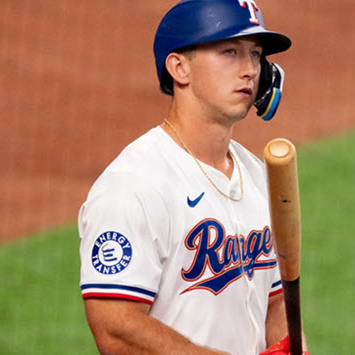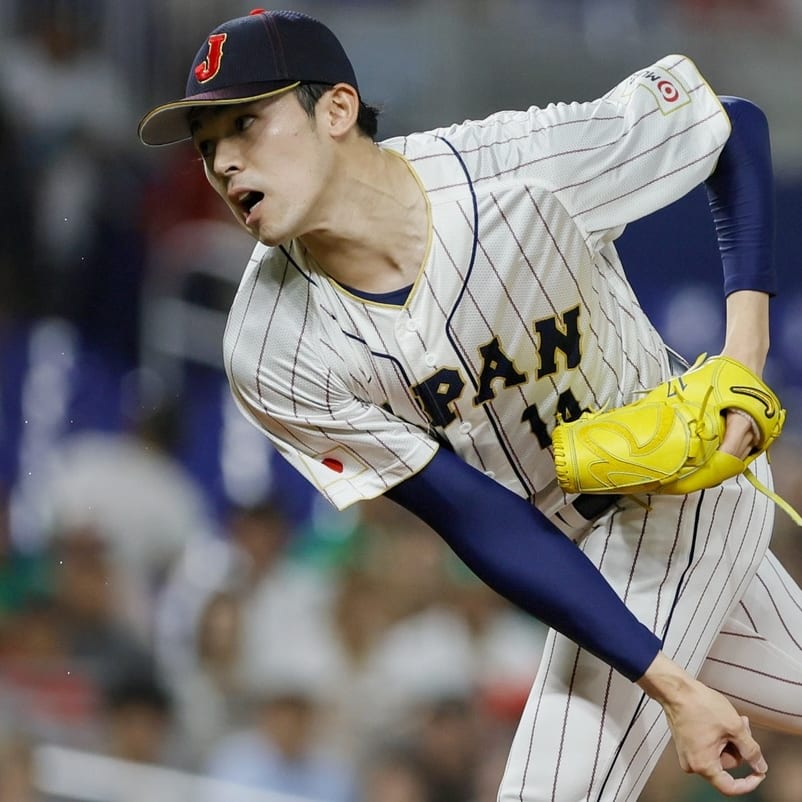This article is part of our John Sickels' Column series.
Freddie Freeman Profile
The Atlanta Braves are 86-67, six games behind the Philadelphia Phillies in the NL East, but in the thick of the wild card race. Jason Heyward has been the big rookie force this year, anchoring the lineup at the tender age of 20 with a +137 OPS. Heyward was drafted in the first round in '07, but Atlanta's second round pick that year, Freddie Freeman, has also developed into an excellent prospect.
Before getting to our Freeman profile, I want to do a quick rundown on right-hander Brandon Beachy, who recently made his major league debut. A good organization finds talent in many different places, and Beachy is a good example of this. He was signed as an undrafted free agent out of Indiana Wesleyan in 2008. He's been amazing this season, posting a 1.73 ERA with a 148:28 K:BB in 119 innings split between Double-A and Triple-A, with 93 hits allowed. All of his component ratios are off the charts, and it was logical for the Braves to give him a shot this month when they needed a pitcher, despite his lack of prospect pedigree. Beachy works at 89-93 MPH, though he can get up to 95 at times. He mixes it with a very good changeup and an okay-but-not-great breaking ball. Stellar command was the key to his success this year. Most scouts seem to rate him as a possible number four starter or strong long reliever, but that's a great thing to
Freddie Freeman Profile
The Atlanta Braves are 86-67, six games behind the Philadelphia Phillies in the NL East, but in the thick of the wild card race. Jason Heyward has been the big rookie force this year, anchoring the lineup at the tender age of 20 with a +137 OPS. Heyward was drafted in the first round in '07, but Atlanta's second round pick that year, Freddie Freeman, has also developed into an excellent prospect.
Before getting to our Freeman profile, I want to do a quick rundown on right-hander Brandon Beachy, who recently made his major league debut. A good organization finds talent in many different places, and Beachy is a good example of this. He was signed as an undrafted free agent out of Indiana Wesleyan in 2008. He's been amazing this season, posting a 1.73 ERA with a 148:28 K:BB in 119 innings split between Double-A and Triple-A, with 93 hits allowed. All of his component ratios are off the charts, and it was logical for the Braves to give him a shot this month when they needed a pitcher, despite his lack of prospect pedigree. Beachy works at 89-93 MPH, though he can get up to 95 at times. He mixes it with a very good changeup and an okay-but-not-great breaking ball. Stellar command was the key to his success this year. Most scouts seem to rate him as a possible number four starter or strong long reliever, but that's a great thing to get as an undrafted free agent, and he has a chance to get beyond that if his breaking ball sharpens up a bit. It is a bit puzzling why he wasn't drafted; he is a good athlete, has a strong body, and sufficient arm strength. Many far more marginal guys get drafted every year.
On to Freddie Freeman.
BACKGROUND
Freddie Freeman was drafted by the Atlanta Braves in the second round of the 2007 draft, out of high school in Orange, California. He was the youngest player to sign in the class that year, not turning 18 until the middle of September. A two-way player in high school, he wanted to hit, though many teams preferred him as a pitcher, and he had a Cal State Fullerton scholarship as leverage. The Braves were able to sign him for $409,500. He struggled in his rookie ball exposure (.268/.295/.379 in 59 games) with serious strike zone problems, but broke out with a strong .316/.378/.521 campaign for Low-A Rome in 2008. Injury problems contributed to a weaker 2009 campaign, but his '10 season for Triple-A Gwinnett has been excellent.
TRADITIONAL SCOUTING REPORT
Freddie Freeman is a left-handed hitter and a right-handed thrower, born September 12th, 1989. Listed at 6-5, 225, Freeman has decent athleticism for his size. Speed will never be his game, but he's not an immobile slug, and scouts suggest he has enough quickness to rate as a very strong defensive first baseman. Some believe he could win Gold Gloves eventually. But it's on offense where Freeman shines. Scouts love his swing, rating it as smooth and consistent. He has not fully tapped into his natural power yet, and might never be a 35-homer guy, but many expect him to develop at least a 20-25 homer punch with a strong batting average and decent OBP. He isn't a huge walk machine, but his strikeout rate is reasonably low, and his batting eye has improved considerably since he first got into pro ball. Given his age (just 20 years old), his power could still develop far beyond where it currently is. He does have some weaknesses against left-handed pitching and his current platoon split is substantial, something else that should improve in time. He handles both fastballs and breaking balls well for his age, although he does get overaggressive at times.
SABERMETRIC ASSESSMENT
Freeman hit .319/.378/.521 this year for Triple-A Gwinnett, with 35 doubles, 18 homers, 43 walks and 84 strikeouts in 461 at-bats. He got off to a slow start in April and May, but made adjustments and came alive in June, remaining hot for the rest of the year. His second half numbers were outstanding: .375/.432/.595. His home/road performance was relatively even, but he did have a sharp platoon split as mentioned above: .337/.402/.559 against right-handers, but just .268/.308/.415 against lefties, with much worse plate discipline. That will be a problem in the majors unless he improves his approach.
Freeman's Major League Equivalent numbers are approximately .275/.330/.440, very impressive for a player his age and much improved over his .215/.280/.300 mark in 2009, indicating solid skill growth. Although his walk/plate appearance ratio isn't great, his strikeout rate is not bad for a young power hitter, another positive marker for his future.
FANTASY INVESTMENT VALUE
It remains to be seen exactly what the Braves will do at first base next year, but Freeman doesn't have a lot left to prove in Triple-A and will clearly be in the lineup by 2012. First base prospects aren't always the best investments, given that it is usually possible to find a first baseman who can hit, but for a team building on youth, Freeman is a good candidate. Although he doesn't project to develop into a Pujols-like first ballot Hall of Fame force, at worst he should be something like a cross between Wally Joyner and Ryan Klesko. At best he could be like Justin Morneau.









